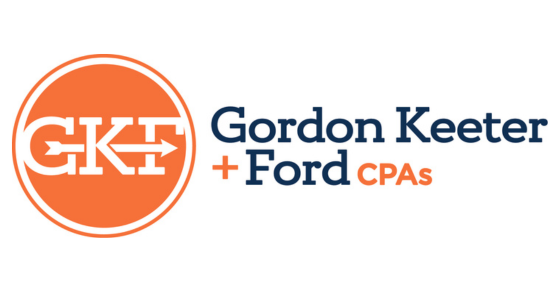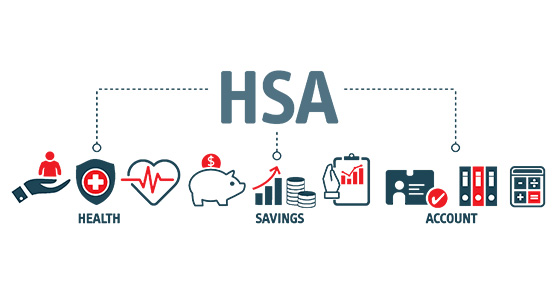If you’re concerned about your 2023 tax bill, there may still be time to reduce it. Here are four quick strategies that may help you trim your taxes before year end.

Continue Reading
In the midst of holiday parties and shopping for gifts, don’t forget to consider steps to cut the 2023 tax liability for your business. You still have time to take advantage of a few opportunities.

Time Deductions and Income
If your business operates on a cash basis, you can significantly affect your amount of taxable income by accelerating your deductions into 2023 and deferring income into 2024 (assuming you expect to be taxed at the same or a lower rate next year).
Continue Reading
If you have a tax-saving flexible spending account (FSA) with your employer to help pay for health or dependent care expenses, there’s an important date coming up. You may have to use the money in the account by year-end or you’ll lose it (unless your employer has a grace period).

As the end of 2023 gets closer, here are some rules and reminders to keep in mind.
Continue Reading
Is your business depreciating over 30 years the entire cost of constructing the building that houses your enterprise? If so, you should consider a cost segregation study. It may allow you to accelerate depreciation deductions on certain items, thereby reducing taxes and boosting cash flow.

Depreciation Basics
Business buildings generally have a 39-year depreciation period (27.5 years for residential rental properties). In most cases, a business depreciates a building’s structural components, including walls, windows, HVAC systems, elevators, plumbing and wiring, along with the building. Personal property — including equipment, machinery, furniture and fixtures — is eligible for accelerated depreciation, usually over five or seven years. And land improvements, such as fences, outdoor lighting and parking lots, are depreciable over 15 years.
Continue Reading
If you’re facing a serious cash shortfall, one possible solution is to take an early withdrawal from your traditional IRA. That means one before you’ve reached age 59½. For this purpose, traditional IRAs include simplified employee pension (SEP-IRA) and SIMPLE-IRA accounts.

Here’s what you need to know about the tax implications, including when the 10% early withdrawal penalty tax might apply.
Continue Reading
If you’re fortunate to have an employer that offers a 401(k) plan, and you don’t contribute to it, you may wonder if you should participate. In general, it’s a great tax and retirement saving deal! These plans help an employee accumulate a retirement nest egg on a tax-advantaged basis. If you’re thinking about contributing to a plan at work, here are some of the advantages.

With a 401(k) plan, you can opt to set aside a certain amount of your wages in a qualified retirement plan. By electing to set cash aside in a 401(k) plan, you’ll reduce your gross income and defer tax on the amount until the cash (adjusted by earnings) is distributed to you in the future. It will either be distributed from the plan or from an IRA or other plan that you roll your proceeds into after leaving your job.
Continue Reading
Restricted stock awards are a popular way for companies to offer equity-oriented executive compensation. Some businesses offer them instead of stock option awards. The reason: Options can lose most or all of their value if the price of the underlying stock takes a dive. But with restricted stock, if the stock price goes down, your company can issue you additional restricted shares to make up the difference.

Restricted Stock Basics
In a typical restricted stock deal, you receive company stock subject to one or more restrictions. The most common restriction is that you must continue working for the company until a certain date. If you leave before then, you forfeit the restricted shares, which are usually issued at minimal or no cost to you.
Continue Reading
If you’re planning to start a business or thinking about changing your business entity, you need to determine what will work best for you. Should you operate as a C corporation or a pass-through entity such as a sole-proprietorship, partnership, limited liability company (LLC) or S corporation? There are many issues to consider.

Currently, the corporate federal income tax is imposed at a flat 21% rate, while individual federal income tax rates currently begin at 10% and go up to 37%. The difference in rates can be alleviated by the qualified business income (QBI) deduction that’s available to eligible pass-through entity owners that are individuals, and some estates and trusts.
Continue Reading
Effective November 1, 2023, Gordon Keeter & Co. has merged with DeAnna Ford, CPA PA and changed our name to Gordon Keeter & Ford CPAs PA. We are also excited to share our new logo and hope it will become immediately recognizable, as a symbol of the quality, expertise, and professionalism we have always had as the foundation of our firm. With the merger, our goal is to enhance these traits and bring a higher level of service to our clients.

A benefit, for many of our clients, will be the addition of a second office. We will not be consolidating offices or moving. We will be maintaining both offices and coordinating schedules so that all services can be realized in person, in both locations. Our scheduled regular office hours will be Monday–Thursday 8:30am–5:00pm and Friday will be 8:30am–1:00pm. As always, we will have expanded hours during tax season and will be available outside of normal business hours for scheduled appointments.
Continue Reading
Many Americans own a vacation home or aspire to purchase one. If you own a second home in a waterfront community, in the mountains or in a resort area, you may want to rent it out for part of the year.

The tax implications of these transactions can be complicated. It depends on how many days the home is rented and your level of personal use. Personal use includes vacation use by you, your family members (even if you charge them market rent) and use by nonrelatives if a market rent isn’t charged.
Continue Reading
Do you use an automobile in your trade or business? If so, you may question how depreciation tax deductions are determined. The rules are complicated, and special limitations that apply to vehicles classified as passenger autos (which include many pickups and SUVs) can result in it taking longer than expected to fully depreciate a vehicle.

Depreciation Is Built Into the Cents-Per-Mile Rate
First, be aware that separate depreciation calculations for a passenger auto only come into play if you choose to use the actual expense method to calculate deductions. If, instead, you use the standard mileage rate (65.5 cents per business mile driven for 2023), a depreciation allowance is built into the rate.
Continue Reading
With the rising cost of college, many families are in search of scholarships to help pay the bills. If your child is awarded a scholarship, you may wonder about how it could affect your family’s taxes. Good news: Scholarships (and fellowships) are generally tax-free for students at elementary, middle, and high schools, as well as those attending college, graduate school or an accredited vocational school. It doesn’t matter if the scholarship makes a direct payment to the individual or reduces tuition.

Requirements for Tax-Free Treatment
Despite this generally favorable treatment, scholarships aren’t always tax-free. Certain requirements must be met. A scholarship is tax-free only if it’s used to pay for:
- Tuition and fees required to attend the school, and
- Fees, books, supplies, and equipment required of all students in a particular course.
Continue Reading
The Social Security Administration recently announced that the wage base for computing Social Security tax will increase to $168,600 for 2024 (up from $160,200 for 2023). Wages and self-employment income above this threshold aren’t subject to Social Security tax.

Basic Details
The Federal Insurance Contributions Act (FICA) imposes two taxes on employers, employees and self-employed workers — one for Old Age, Survivors and Disability Insurance, which is commonly known as the Social Security tax, and the other for Hospital Insurance, which is commonly known as the Medicare tax.
Continue Reading
If you gamble or buy lottery tickets and you’re lucky enough to win, congratulations! After you celebrate, be aware that there are tax consequences attached to your good fortune.

Winning at Gambling
For tax purposes, it doesn’t matter if you win at the casino, a bingo hall or elsewhere. You must report 100% of your winnings as taxable income. They’re reported on an “Other income” line of your 1040 tax return. To measure your winnings on a particular wager, use the net gain. For example, if a $40 bet at the racetrack turns into a $130 win, you’ve won $90, not $130.
Continue Reading
If you read the Internal Revenue Code (and you probably don’t want to!), you may be surprised to find that most business deductions aren’t specifically listed. For example, the tax law doesn’t explicitly state that you can deduct office supplies and certain other expenses. Some expenses are detailed in the tax code, but the general rule is contained in the first sentence of Section 162, which states you can write off “all the ordinary and necessary expenses paid or incurred during the taxable year in carrying on any trade or business.”

Basic Definitions
In general, an expense is ordinary if it’s considered common or customary in the particular trade or business. For example, insurance premiums to protect a store would be an ordinary business expense in the retail industry.
Continue Reading
With the escalating cost of health care, many people are looking for a more cost-effective way to pay for it.

For eligible individuals, a Health Savings Account (HSA) offers a tax-favorable way to set aside funds (or have an employer do so) to meet future medical needs. Here are four tax benefits:
Continue Reading
Do you and your spouse together operate a profitable unincorporated small business? If so, you face some challenging tax issues.

The Partnership Issue
An unincorporated business with your spouse is classified as a partnership for federal income tax purposes, unless you can avoid that treatment. Otherwise, you must file an annual partnership return, on Form 1065. In addition, you and your spouse must be issued separate Schedule K-1s, which allocate the partnership’s taxable income, deductions and credits between the two of you. This is only the beginning of the unwelcome tax compliance tasks.
Continue Reading
In recent years, merger and acquisition activity has been strong in many industries. If your business is considering merging with or acquiring another business, it’s important to understand how the transaction will be taxed under current law.

Stocks vs. Assets
From a tax standpoint, a transaction can basically be structured in two ways:
Continue Reading
If your investments have fluctuated wildly this year, you may have already recognized some significant gains and losses. But nothing is decided tax-wise until year end when the final results of your trades will reveal your 2023 tax situation. Here’s what you need to know to avoid tax surprises.

Tax-Favored Retirement Accounts and Taxable Accounts
If you’ve had wild swings in the value of investments held in a tax-favored 401(k), traditional IRA, Roth IRA, or self-employed SEP account, there’s no current tax impact. While these changes affect your account value, they have no tax consequences until you finally start taking withdrawals. At that point, the size of your balance(s) will affect your tax bills. If you have investments in a Roth IRA, qualified withdrawals taken after age 59½ can be federal-income-tax-free.
Continue Reading
Let’s say you decide to, or are asked to, guarantee a loan to your corporation. Before agreeing to act as a guarantor, endorser or indemnitor of a debt obligation of your closely held corporation, be aware of the possible tax implications. If your corporation defaults on the loan and you’re required to pay principal or interest under the guarantee agreement, you don’t want to be caught unaware.

A Business Bad Debt
If you’re compelled to make good on the obligation, the payment of principal or interest in discharge of the obligation generally results in a bad debt deduction. This may be either a business or a nonbusiness bad debt deduction. If it’s a business bad debt, it’s deductible against ordinary income. A business bad debt can be either totally or partly worthless. If it’s a nonbusiness bad debt, it’s deductible as a short-term capital loss, which is subject to certain limitations on deductions of capital losses. A nonbusiness bad debt is deductible only if it’s totally worthless.
Continue Reading
If your employer provides life insurance, you probably find it to be a desirable fringe benefit. However, if group term life insurance is part of your benefits package, and the coverage is higher than $50,000, there may be undesirable income tax implications.

You’re Taxed on Income You Didn’t Receive
The first $50,000 of group term life insurance coverage that your employer provides is excluded from taxable income and doesn’t add anything to your income tax bill. But the employer-paid cost of group term coverage in excess of $50,000 is taxable income to you. It’s included in the taxable wages reported on your Form W-2 — even though you never actually receive it. In other words, it’s “phantom income.”
Continue Reading
If you’re getting a divorce, you know the process is generally filled with stress. But if you’re a business owner, tax issues can complicate matters even more. Your business ownership interest is one of your biggest personal assets and in many cases, your marital property will include all or part of it.

Transferring Property Tax-Free
In general, you can divide most assets, including cash and business ownership interests, between you and your soon-to-be ex-spouse without any federal income or gift tax consequences. When an asset falls under this tax-free transfer rule, the spouse who receives the asset takes over its existing tax basis (for tax gain or loss purposes) and its existing holding period (for short-term or long-term holding period purposes).
Continue Reading
Now that Labor Day has passed, the holidays are just around the corner. Many people may want to make gifts of cash or stock to their loved ones. By properly using the annual exclusion, gifts to family members and loved ones can reduce the size of your taxable estate, within generous limits, without triggering any estate or gift tax. The exclusion amount for 2023 is $17,000.

The exclusion covers gifts you make to each recipient each year. Therefore, a taxpayer with three children can transfer $51,000 to the children this year free of federal gift taxes. If the only gifts made during a year are excluded in this fashion, there’s no need to file a federal gift tax return. If annual gifts exceed $17,000, the exclusion covers the first $17,000 per recipient, and only the excess is taxable. In addition, even taxable gifts may result in no gift tax liability thanks to the unified credit (discussed below).
Continue Reading
The Tax Cuts and Jobs Act liberalized the rules for depreciating business assets. However, the amounts change every year due to inflation adjustments. And due to high inflation, the adjustments for 2023 were big. Here are the numbers that small business owners need to know.

Section 179 Deductions
For qualifying assets placed in service in tax years beginning in 2023, the maximum Sec. 179 deduction is $1.16 million. But if your business puts in service more than $2.89 million of qualified assets, the maximum Sec. 179 deduction begins to be phased out.
Continue Reading
The SECURE 2.0 law, which was enacted last year, contains wide-ranging changes to retirement plans. One provision in the law is that eligible employers will soon be able to provide more help to staff members facing emergencies. This will be done through what the law calls “pension-linked emergency savings accounts.”

Effective for plan years beginning January 1, 2024, SECURE 2.0 permits a plan sponsor to amend its 401(k), 403(b) or government 457(b) plan to offer emergency savings accounts that are connected to the plan.
Continue Reading
If you have family members with disabilities, there may be a tax-advantaged way to save for their needs — without having them lose eligibility for the government benefits to which they’re entitled. It can be done through an Achieving a Better Life Experience (ABLE) account, which is a tax-free account that can be used for disability-related expenses. The SECURE 2.0 law made changes that will allow more people to be eligible for these accounts, beginning in 2026.

Eligibility Rules
ABLE accounts can be created by eligible individuals to support themselves, by family members to support their dependents, or by guardians for the benefit of the individuals for whom they’re responsible. Anyone can contribute to an ABLE account. While contributions aren’t tax-deductible, the funds in the account are invested and grow free of tax.
Continue Reading
Let’s say you own highly appreciated land that’s now ripe for development. If you subdivide it, develop the resulting parcels and sell them off for a hefty profit, it could trigger a large tax bill.

In this scenario, the tax rules generally treat you as a real estate dealer. That means your entire profit — including the portion from pre-development appreciation in the value of the land — will be treated as high-taxed ordinary income subject to a federal rate of up to 37%. You may also owe the 3.8% net investment income tax (NIIT) for a combined federal rate of up to 40.8%. And you may owe state income tax too.
Continue Reading
More than a million Americans live in nursing homes, according to various reports. If you have a parent entering one, you’re probably not thinking about taxes. But there may be tax consequences. Let’s take a look at five possible tax breaks.

1. Long-Term Medical Care
The costs of qualified long-term care, including nursing home care, are deductible as medical expenses to the extent they, along with other medical expenses, exceed 7.5% of adjusted gross income (AGI).
Continue Reading
If you operate your small business as a sole proprietorship, you may have thought about forming a limited liability company (LLC) to protect your assets. Or maybe you’re launching a new business and want to know your options for setting it up. Here are the basics of operating as an LLC and why it might be a good choice for your business.

An LLC is a bit of a hybrid entity because it can be structured to resemble a corporation for owner liability purposes and a partnership for federal tax purposes. This duality may provide the owners with the best of both worlds.
Continue Reading
An estimated 190 million Americans have recently been under heat advisory alerts, according to the National Weather Service. That may have spurred you to think about making your home more energy efficient — and there’s a cool tax break that may apply. Thanks to the Inflation Reduction Act of 2022, you may be able to benefit from an enhanced residential energy tax credit to help defray the cost.

Eligibility Rules
If you make eligible energy-efficient improvements to your home on or after January 1, 2023, you may qualify for a tax credit up to $3,200. You can claim the credit for improvements made through 2032.
Continue Reading































